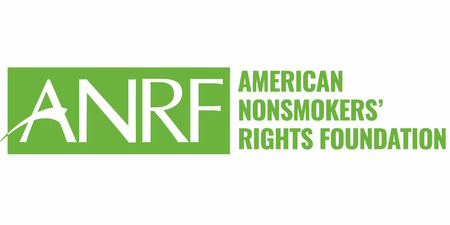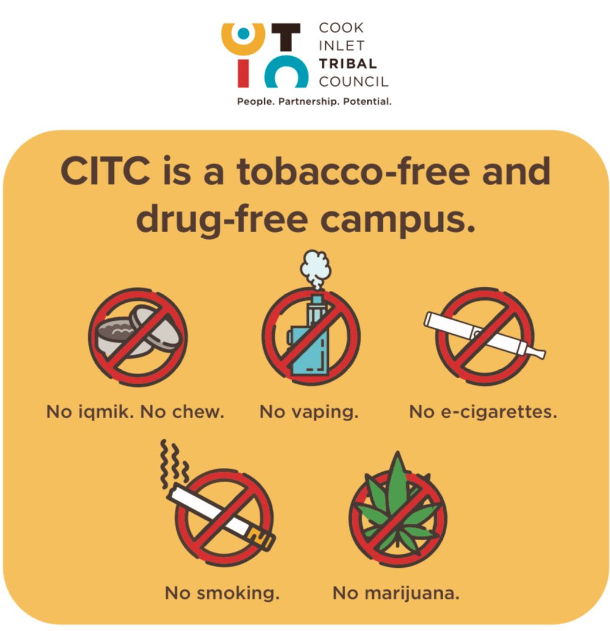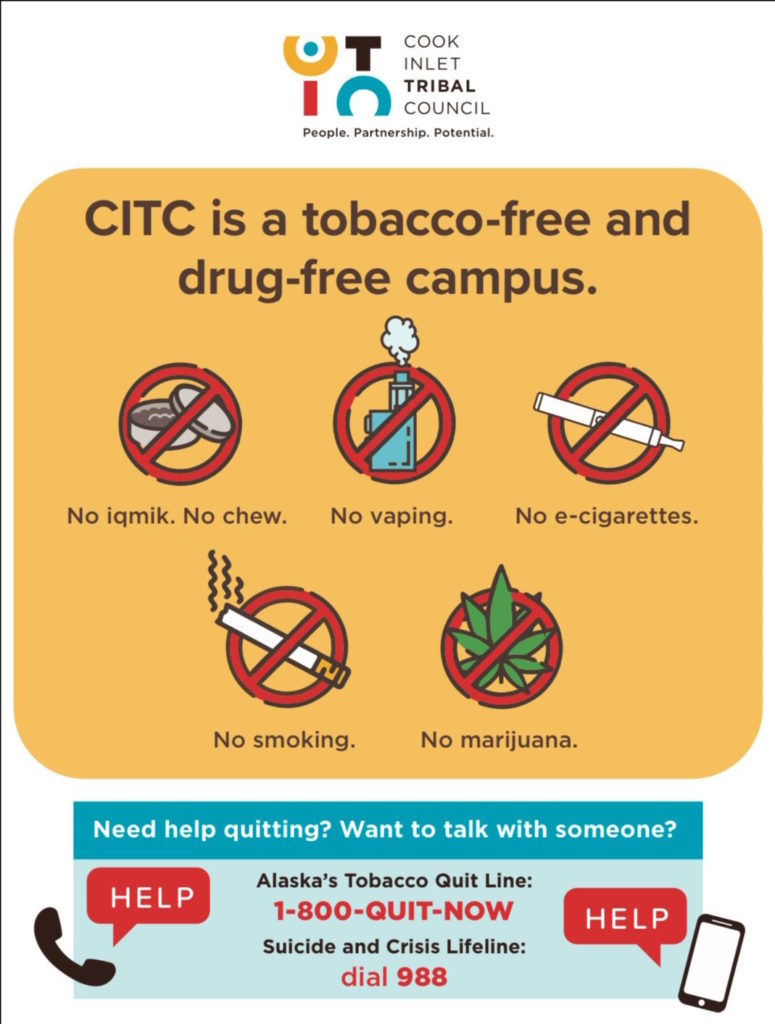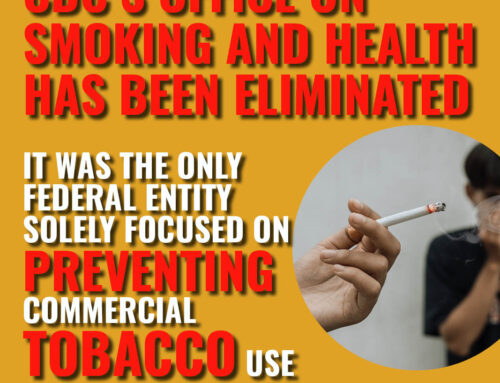Cook Inlet Tribal Council, Inc., a nonprofit that works in partnership with eight federally recognized Alaska Native Tribal Nations, unveils culturally responsive signage to help ensure the success of their new smokefree campus policy. This signage includes the indigenous word “Iqmik”, which translates to a mix of tobacco and punk ash used as recreational chewing tobacco. It is common for Tribal communities to adapt conventional public health policy, such as incorporating indigenous language, in order to reflect cultural norms and move closer to achieving health equity.
The CITC developed this smokefree signage to inform community members of the Cook Inlet Region that good health and wellness is within reach, and it uses its colors, position of words, and detailed art to deliver its message to the Tribal community. Strategically, the sign will prevent the use of recreational commercial tobacco in public areas immediately and contribute to lower commercial tobacco use rates over time. The same exact sign may not be as effective in a different Tribal community because it was designed to be culturally relevant for the Cook Inlet Region.
In the United States, there are 574 federally recognized Tribal Nations and Alaska represents approximately half of that total number. Successful commercial tobacco prevention in Tribal communities is developed with the understanding that each Tribe, whether federally recognized or not, is autonomous. American Indian and Alaskan Native Tribes each have a unique history and culture, which can include a different understanding and relationship with tobacco. Further, Tribes have their own system of government, known as Tribal sovereignty, and it is equally important to understand when designing tools for Tribal policy implementation.
The American Nonsmokers’ Rights Foundation organizes a coalition call once every two months with Tribal leaders and community members who are currently navigating the complexities within the Tribal policy process. The coalition titled “Reclaim Sacred Tobacco” is hosted alongside with the Diné Health Equity Program, and it provides technical assistance (e.g., survey design, policy templates, videos, and more) to help increase commercial tobacco policies and eliminate secondhand smoke exposure in Indian Country.
The intent of the Reclaim Sacred Tobacco group is to provide tools that reshape health inequities, eliminate commercial tobacco use, and decolonize tobacco entirely from Tribal communities. The next Reclaim Sacred Tobacco call will take place on Friday, February 24 at 11:00am – 12:00pm CST.







